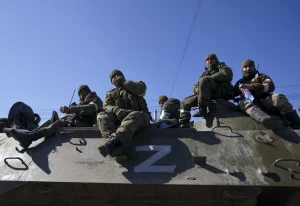
Ukraine officially becomes 125th state party to ICC Rome Statute
On January 1, Ukraine officially became the 125th state party to the Rome Statute of the International Criminal Court (ICC). The country is now a full ICC member with the same rights as other states
This was reported by an Ukrinform correspondent in The Hague.
As noted, the blue-and-yellow Ukrainian flag has been placed in the court building alongside the flags of other ICC member states.
ICC spokesman Fadi El Abdallah explained that Ukraine’s new status as a state party to the ICC grants it all the rights and obligations of other members.
The most significant is the right to vote on approving the budget, adopting changes to the Rome Statute, and selecting judges, the future Prosecutor, and their deputies. This allows Ukraine to help shape the future of international criminal law, the ICC spokesman said.
He expressed hope that Ukraine’s example would inspire other countries.
“We hope others will see this as a signal, support it, and join in the global fight against impunity. This will bring us closer to the dream of universal ratification of the Rome Statute, where all states work together to build a more just world,” Fadi El Abdallah emphasized.
When asked about the possibility of a Ukrainian judge at the ICC, he said Ukraine, as a state party, can nominate candidates, but their selection depends on the Assembly’s vote.
The spokesman noted that ICC judges must meet certain requirements, such as expertise in international or criminal law and eligibility for the highest judicial roles in their home countries. Elections for six ICC judges are held every three years.
“We hope Ukraine will actively participate in supporting the ICC, including nominating judicial candidates and contributing to increasing the number of Ukrainian representatives in the ICC,” El Abdallah emphasized.
He also clarified that the ICC prosecutes individuals, not states, emphasizing the focus on individual accountability for crimes.
Who can bring charges against suspects? Not states, but the ICC Prosecutor. States parties can submit applications regarding specific conflicts or crimes, and the Prosecutor decides whether to proceed. If the evidence aligns with ICC jurisdiction, the Prosecutor may bring charges and request arrest warrants or summonses. Cooperation from states is crucial for gathering evidence effectively and efficiently, the ICC spokesman added.
He noted that Ukraine had already recognized ICC jurisdiction, leading to an ongoing investigation. The ICC Prosecutor has initiated several cases, with more potentially on the way. Ukraine’s ratification of the Rome Statute does not restart the investigation, as it was launched based on Ukraine’s earlier application.
Following ratification, Ukraine also takes on new obligations, such as financial contributions to the ICC budget. The spokesman explained that the budget is determined by the Assembly of States Parties, considering each country’s economy and population size.
- As a reminder, on August 24, President Volodymyr Zelenskyy signed a law ratifying the Rome Statute and its amendments.
- On October 9, the Verkhovna Rada approved draft law No. 11484 on amendments to criminal legislation related to the Rome Statute. On October 22, Zelenskyy signed it into law.
- News












































